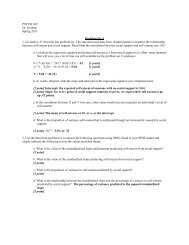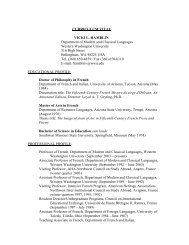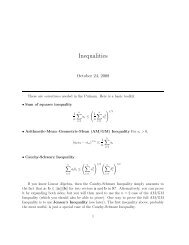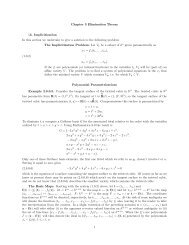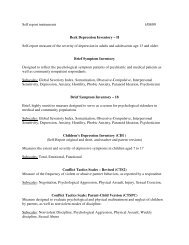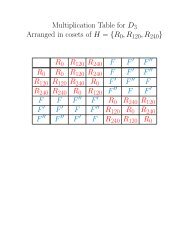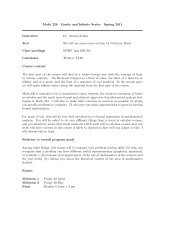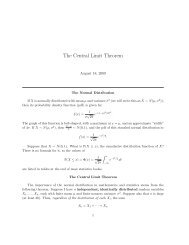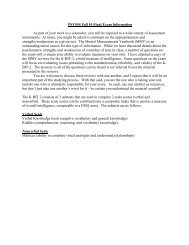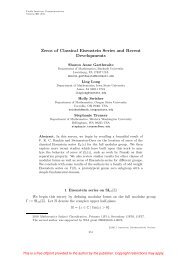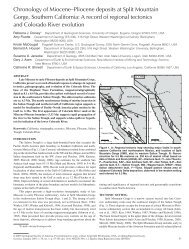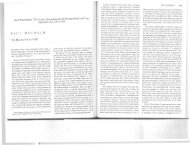Can There Be A Knowledge-First Ethics of Belief? - Western ...
Can There Be A Knowledge-First Ethics of Belief? - Western ...
Can There Be A Knowledge-First Ethics of Belief? - Western ...
You also want an ePaper? Increase the reach of your titles
YUMPU automatically turns print PDFs into web optimized ePapers that Google loves.
knowledge-theoretic claims about what we should believe with fairly undemanding<br />
claims about what is reasonable or excusable for us to believe -<br />
have quite a bit to recommend them. 13 In the end, they may turn out to<br />
work. However, if they do work, then they work by passing the theoretical<br />
buck from the notion <strong>of</strong> what we should believe to the notion <strong>of</strong> what is<br />
reasonable or excusable for us to believe. And if there is not something<br />
significant also said about the latter notion, then it is hard to shake the idea<br />
that the package views relocate our original question instead <strong>of</strong> answering<br />
it.<br />
We start out by asking what we should believe. Package knowledge-first<br />
theories answer this question, but their answers lean hard on a new notion,<br />
the notion <strong>of</strong> what is reasonable or excusable for us to believe. In order<br />
to fully adjudicate these package knowledge-first theories, we need to ask a<br />
second question: what is reasonable or excusable for us to believe? Perhaps<br />
there is a good answer. But until we have one, it is hard to shake the<br />
idea that what mattered about our first question, or at least a significant<br />
part <strong>of</strong> what mattered about our first question, has been relocated (under<br />
the notion <strong>of</strong> what is reasonable or excusable to believe) instead <strong>of</strong> being<br />
resolved. 14<br />
<strong>Can</strong> the package views adequately fill in the details about what is reasonable<br />
or excusable for us to believe? Here is a reason to doubt as much.<br />
<strong>Knowledge</strong>-first theories <strong>of</strong> what we should believe, if they are combined<br />
with theories <strong>of</strong> what is reasonable or excusable for us to believe, ought to<br />
be combined with knowledge-first theories <strong>of</strong> the latter issue. And it is hard<br />
to see how there could be an adequate knowledge-first theory <strong>of</strong> the latter<br />
issue. Each so-far-discussed theory <strong>of</strong> what we should believe - the identity<br />
theories, the counterfactual theories, the knowledge-minus-belief theories -<br />
could be reinterpreted as a theory about what is reasonable or excusable for<br />
us to believe. But the reinterpreted theories seem just as problematic, and<br />
for just the same reasons, as do the originals. So, if we are going to find an<br />
adequate knowledge-first theory <strong>of</strong> what is reasonable or excusable for us to<br />
believe, then we will have to find it in some place other than reinterpreted<br />
versions <strong>of</strong> the views we’ve already discussed.<br />
Where else is there to look? One prima facie promising strategy is to look<br />
at the additional theories (about what we should believe) that I will discuss<br />
in the rest <strong>of</strong> the current paper. However, the same point applies with those<br />
additional theories. As I will argue, each <strong>of</strong> those additional theories has<br />
17




